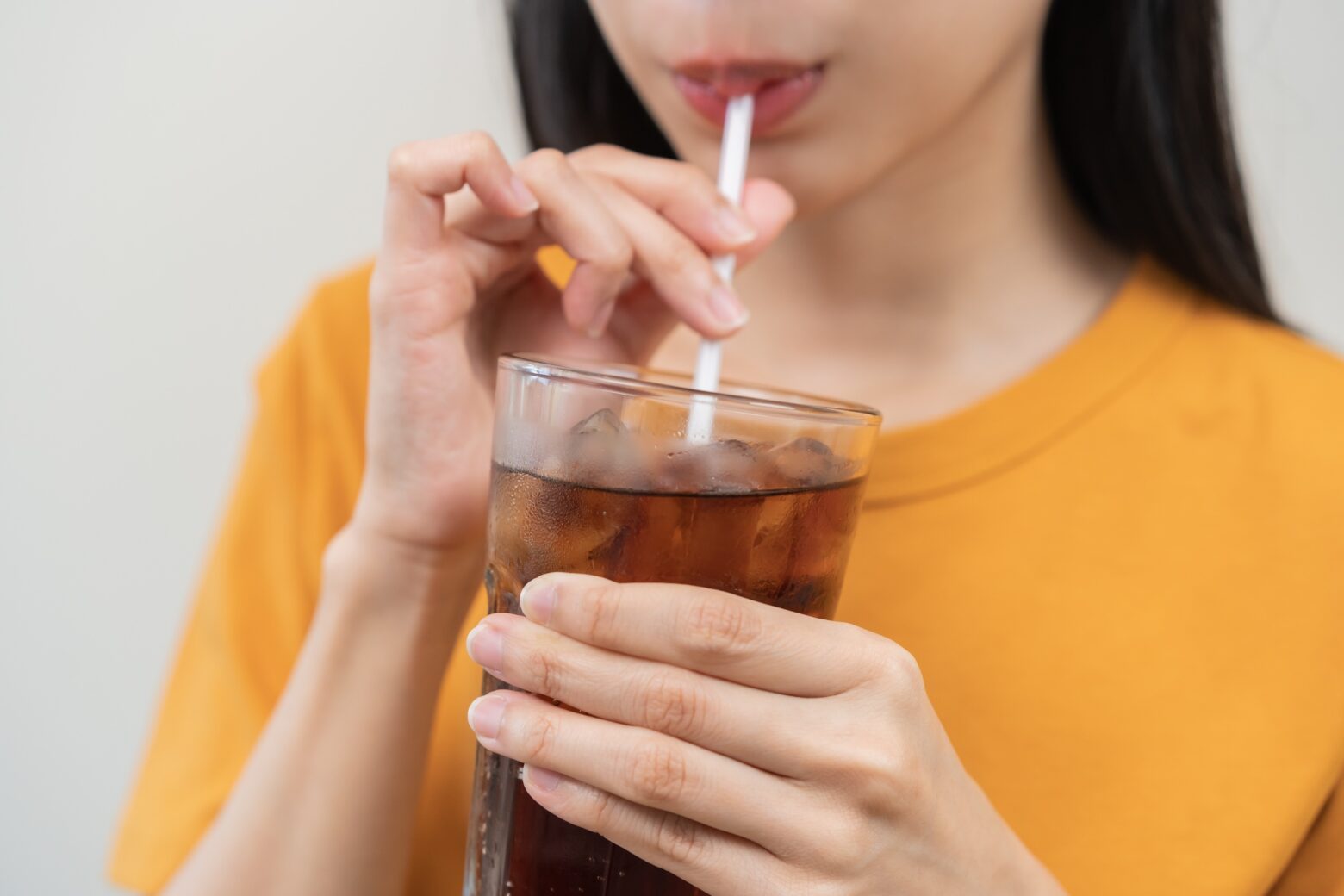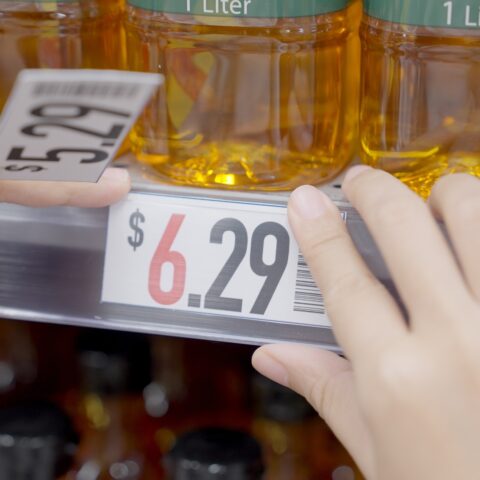How Healthy Is Diet Soda?

For the past two decades, thirsty Americans favored energy drinks, flavored seltzers, and coffee over sodas because of health concerns. But in the first quarter of 2025, the top soft drink brands reported a modest resurgence in sales, according to Evercore ISI data.1 Why now? Consumers see them as an affordable indulgence during a time of economic uncertainty.
While the health dangers of sugar-sweetened drinks are well-known, it’s time to revisit what is in zero-calorie, sugar-free soft drinks and diet sodas and what is known about their health ramifications.
Is Diet Soda Bad for You?
Despite the return to popularity, diet sodas are ultra-processed foods that offer little nutritional value and usually contain artificial sweeteners, preservatives, and colorants. They have been found to be just as erosive to tooth enamel as sugary carbonated drinks,2 and long-term use may cause gut dysbiosis and systemic inflammation.3 Many diet sodas contain aspartame, phosphoric acid, and sodium benzoate.
Aspartame
The World Health Organization is calling for more studies and cites concerns that aspartame, the primary no-calorie sweetener in diet soft drinks, is a possible carcinogen as shown in rat studies.4 Aspartame is a chemical stressor that elevates plasma cortisol levels and causes the production of excess free radicals, which may increase the brain’s vulnerability to oxidative stress.5
A known concern about aspartame is that its two primary metabolites, phenylalanine and aspartic acid, in the brain inhibit the synthesis and release of known regulators of neurophysiological activity. These include the neurotransmitters dopamine, norepinephrine, and serotonin, which may affect neuro-signaling, gut health, and microbiome balance.6
Phosphoric Acid
Most dark-colored diet sodas contain phosphoric acid. It’s what gives the drinks their unique tangy flavor and acts as a preservative. Phosphoric acid can be detrimental to tooth and bone health.
Most of us have an excess of phosphorus in our diet. This matters since calcium and phosphorus bind to each other. The excess phosphorus pulls calcium out of the body and demineralizes bones in the process. This weakens bones over time.7
Consuming phosphoric acid takes a toll on your kidneys, too, since it’s their job to keep phosphorus in balance. Drinking only two cans of diet soda per day more than doubles the risk of chronic kidney disease.8
Sodium Benzoate
Sodium benzoate is a preservative in diet soft drinks. Evidence suggests that it can break down into a carcinogenic compound called benzene. While sodas don’t always contain benzene when tested, diet drinks may be more likely to have benzene because the sugars in non-diet drinks help to inhibit its formation.9
How Much Caffeine Is in Diet Soda?
A 12-ounce can of Diet Coke contains 46 mg of caffeine. That’s about as much caffeine as a cup of tea.
Caffeine does have some associated health benefits.10 It can:
- Improve mood and lessen depression,
- Amplify concentration and alertness,
- Enhance cognitive health and reduce the risk of stroke, Parkinson’s disease, and Alzheimer’s disease.
You might consider drinking some caffeine before your next workout, as it improves exercise performance.11 However, because the benefits of caffeine consumption are outweighed by the other negative health effects of diet sodas, consider obtaining your caffeine from our suggested alternatives below.
Also, caffeine consumption isn’t without its risks, because if you are sensitive to caffeine, it can cause anxiety and insomnia and contribute to migraines.10 Another problem with the caffeine in diet soda is that it is habit-forming,12 which keeps you coming back for more.
How Much Sugar Is in Diet Soda?
There is no real sugar in diet soda. You probably know that added sugars in our diets can lead to all kinds of health problems, including insulin resistance, weight gain, metabolic syndrome, and type 2 diabetes.13
Again, this is related in part to the sweeteners used. When your tongue tastes sweetness, your pancreas releases insulin into the bloodstream.14 That’s why even artificial sweeteners like aspartame may lead to insulin resistance over time.15,16
Alternatives to Diet Soda
Now that you know why diet soft drinks can be bad for you, you may be interested in kicking the habit. Popular caffeinated alternatives allowed on The Paleo Diet® include black tea, green tea, matcha, yerba maté, or coffee.
When you’re in the mood for something sweet, try a touch of natural, Paleo sugars instead of artificial ones or refined sugar. This includes date paste, fresh-squeezed juices, or raw honey. Just remember to eat and drink sweet things only in moderation. Excess natural sweeteners can still harm your health.
References
- Meyersohn, N. (2024, November). Soda is making a comeback. CNN. https://www.cnn.com/2024/11/01/business/coke-dr-pepper-soda/index.html
- Tahmassebi, J. F., & BaniHani, A. (2019). Impact of Soft Drinks to Health and economy: a Critical Review. European Archives of Paediatric Dentistry, 21(1), 109–117. https://doi.org/10.1007/s40368-019-00458-0
- M, M., & Vellapandian, C. (2024). Exploring the Long-Term Effect of Artificial Sweeteners on Metabolic Health. Cureus. https://pmc.ncbi.nlm.nih.gov/articles/PMC11501561/
- World Health Organization. (2023, July 14). Aspartame Hazard and Risk Assessment Results Released. Www.who.int. https://www.who.int/news/item/14-07-2023-aspartame-hazard-and-risk-assessment-results-released
- Choudhary, A. K., & Lee, Y. Y. (2017). Neurophysiological symptoms and aspartame: What is the connection? Nutritional Neuroscience, 21(5), 306–316. https://doi.org/10.1080/1028415x.2017.1288340
- Choudhary, A. K., & Lee, Y. Y. (2018). The debate over neurotransmitter interaction in aspartame usage. Journal of Clinical Neuroscience, 56, 7–15. https://doi.org/10.1016/j.jocn.2018.06.043
- Vorland, C. J., Stremke, E. R., Moorthi, R. N., & Hill Gallant, K. M. (2017). Effects of excessive dietary phosphorus intake on bone health. Current osteoporosis reports, 15(5), 473–482. https://pmc.ncbi.nlm.nih.gov/articles/PMC5693714/
- Saldana, T. M., Basso, O., Darden, R., & Sandler, D. P. (2007). Carbonated beverages and chronic kidney disease. Epidemiology (Cambridge, Mass.), 18(4), 501–506. https://pmc.ncbi.nlm.nih.gov/articles/PMC3433753/
- Salviano Dos Santos, V. P., Medeiros Salgado, A., Guedes Torres, A., & Signori Pereira, K. (2015). Benzene as a chemical hazard in processed foods. International journal of food science, 2015, 545640. https://pubmed.ncbi.nlm.nih.gov/26904662/
- Nehlig A. (2016). Effects of coffee/caffeine on brain health and disease: What should I tell my patients? Practical neurology, 16(2), 89–95. https://pubmed.ncbi.nlm.nih.gov/26677204/
- Pickering, C., & Grgic, J. (2019). Caffeine and Exercise: What Next?. Sports medicine (Auckland, N.Z.), 49(7), 1007–1030. https://pubmed.ncbi.nlm.nih.gov/30977054/
- Meredith, S. E., Juliano, L. M., Hughes, J. R., & Griffiths, R. R. (2013). Caffeine Use Disorder: A Comprehensive Review and Research Agenda. Journal of caffeine research, 3(3), 114–130. https://pmc.ncbi.nlm.nih.gov/articles/PMC3777290/
- Johns Hopkins Medicine. Facts about sugar and sugar substitutes. https://www.hopkinsmedicine.org/health/wellness-and-prevention/facts-about-sugar-and-sugar-substitutes
- Tonosaki, K., Hori, Y., Shimizu, Y., & Tonosaki, K. (2007). Relationships between insulin release and taste. Biomedical research (Tokyo, Japan), 28(2), 79–83. https://pubmed.ncbi.nlm.nih.gov/17510492/
- Mathur, K., Agrawal, R. K., Nagpure, S., & Deshpande, D. (2020). Effect of artificial sweeteners on insulin resistance among type-2 diabetes mellitus patients. Journal of family medicine and primary care, 9(1), 69–71. https://pmc.ncbi.nlm.nih.gov/articles/PMC7014832/
- Ayoub-Charette, S., McGlynn, N., Lee, D., Khan, T. A., Sonia Blanco Mejia, Chiavaroli, L., Kavanagh, M., Seider, M., Taibi, A., Chen, C. T., Ahmed, A., Asbury, R., Erlich, M., Chen, Y.-T., Malik, V., Bazinet, R. P., D Dan Ramdath, Logue, C., Hanley, A. J., & Cyril W.C. Kendall. (2023). Rationale, Design and Participants Baseline Characteristics of a Crossover Randomized Controlled Trial of the Effect of Replacing SSBs with NSBs versus Water on Glucose Tolerance, Gut Microbiome and Cardiometabolic Risk in Overweight or Obese Adult SSB Consumer: Strategies to Oppose SUGARS with Non-Nutritive Sweeteners or Water (STOP Sugars NOW) Trial and Ectopic Fat Sub-Study. Nutrients, 15(5), 1238–1238. https://pubmed.ncbi.nlm.nih.gov/36904237/
The Paleo Diet Team
The Paleo Diet® team consists of a group of scientists, journalists, experts, and recipe creators who stay at the forefront of nutrition science.
More About The Author




